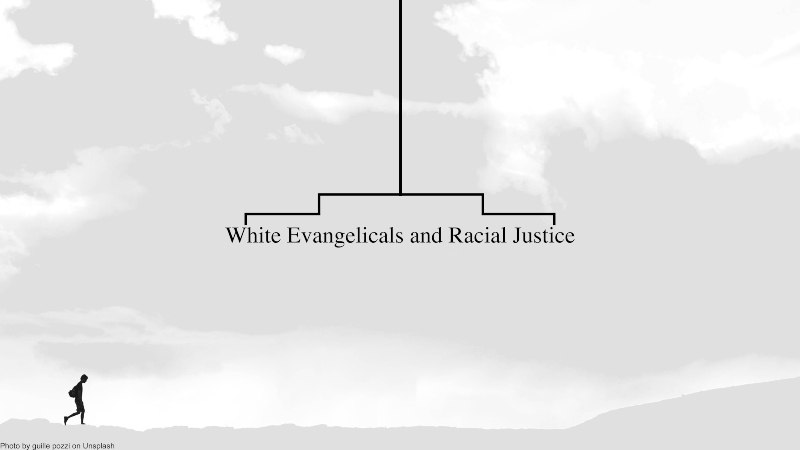White evangelicals and racial justice
Exploring why racial justice issues are not an important part of white evangelical mission theology - and offering ideas for change. By Israel Olofinjana

I am one of those African pastors who have decided to work and serve within what I would refer to as white spaces. The particularity of the context of the white spaces I work with are that of white evangelicals through mission agencies, theological colleges and church networks. As a reverse missionary who prides himself in serving in multicultural multi-ethnic contexts, it has been a pleasure serving in these spaces, contributing something different on mission theology and praxis.
White evangelicals are a broad spectrum covering reformed, charismatics, conservative, progressives, ecumenicals and radicals. These tags or labels are not exhaustive, but it is a start. While some have been on a journey of conceiving mission only in terms of evangelism and discipleship and later adding social-political responsibility, there still remains a reluctance to engage racial justice issues as a paradigm for mission. Some have engaged gender justice very well, while others have embraced environmental justice issues, but there is still a reluctance I see in engaging racial justice concerns.
There are some who are seriously engaging and championing racial justice causes in Britain, but the question is why has it not become the norm? To put the question another way: why are racial justice issues not an important part of white evangelical mission theology? One obvious reason is that racial justice conversations are very uncomfortable for white evangelicals because of immediate white guilt. Another obvious reason which other people have commented on is white privilege or hegemony, which becomes a blind spot in seeing racial justice concerns. This is rightly so, but white privilege needs to be nuanced because it is a massive subject area as it manifests itself in different endeavours of life.
Another reason for the reluctance is how white evangelicals read and interpret the biblical texts and do theology. If white charismatics spiritualise the scriptures so that there is more emphasis on growing in discipleship through our giftings, white reformed move in the other direction of growing in discipleship through biblical exposition. These are not bad emphasis, but what is sometimes missing is a post-colonial reading of scriptures that situate the text in colonial thinking. This means it is possible to talk about God using Moses' staff as a gift but not dwell on the slavery context of the children of Israel. It is possible to expound on the book of Daniel but miss the crucial points that nevertheless, Daniel and the three Hebrew children where colonised by the Babylonians.
There is the need for white evangelicals to decolonise their mission theology and a good place to start is to re-examine what is taught at our theological institutions. As someone who lectures and teaches in various theological institutions, I see some good signs but more work needs to be done. This can be done by introducing the history of colonialism and imperialism into our history of mission curriculum or modules.
Another area that needs work is allowing Africans, Asians, African Caribbeans and Latin Americans to not only come in and speak on Diaspora Mission, as if that is all we can offer, but to teach biblical studies and systematic theology. The question is always, but we do not know qualified biblical scholars who are of Majority World (Africa, Caribbean, Latin American and Asia) in Britain who can teach these subjects. The problem sometimes is our limited networks which constantly draw in people from the same pull, so let us widen our networks so that we can connect beyond people like us!
Another area to consider in terms of decolonising our mission theology is, instead of constantly inviting Africans or African Caribbeans to come in once in a while to teach on multi-ethnic churches, why not employ them as a part-time staff or associate tutors? If white evangelicals are going to begin to engage broadly the concerns of racial justice, then we have to seriously think of employment and staffing issues at our theological colleges.
Our theological colleges are where we train the gate keepers: if the gate keepers are not well equipped to discern racial justice matters in their locality then racial injustice will happen under their nose, and they will not even recognise it. It is time to shift our theological colleges in the direction of racial justice and to do this we have to decolonise our curriculum.
The Revd Israel Olofinjana is the minister of Woolwich Central Baptist Church and Director of the Centre For Missionaries from the Majority World cmmw.org.uk, and the author of several books.
World Christianity in Western Europe is a new book edited by Israel and published by Regnum Books, Studies in Mission (Oxford Centre for Mission Studies).
Want to comment on this reflection? Please leave your thoughts via this contact form.
Some comments may be shared below.